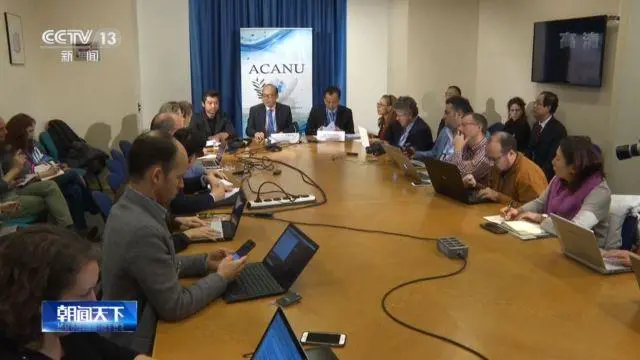Senior UN officials said here Thursday that Haiti's imminent elections next month will look to inaugurate a new period of transparency, democracy and development long yearned for by its citizens.
The statement came as the senior UN officials were taking the floor at the Haiti International Partners Electoral Meeting, a key gathering of the small island county's partners at UN Headquarters in New York, which was opened by Haitian Prime Minister Evans Paul and co-hosted by the permanent representative of Uruguay to the United Nations, Gonzalo Koncke, the head of the Group of Friends of Haiti.
The elections, set to kick off on Aug. 9, are wide ranging in their scale and complexity. Some 6 million Haitians will vote for 1,280 representatives for local administrations, 140 mayors, 139 Parliamentarians and for the President.
The several rounds of electoral processes could last until the end of the year and will aim to restore the Caribbean country's Parliament, which has been absent since January.
Early this year, the Haitian Electoral Council has formally proposed that elections for two-thirds of the senate and the chamber of deputies will be conducted on Aug. 9, with the presidential and municipal vote to be held on Oct. 25.
Also, parliamentary runoff elections are scheduled for Oct. 25, the same day as the first round of presidential and local elections. Presidential runoff elections are proposed to take place, if necessary, on Dec. 27.
The UN Development Programme (UNDP) director for Latin America and the Caribbean, Jessica Faieta, explained that after five years of recovery efforts in the Caribbean nation, the international community's hard work has finally "paid off."
The country is "back on its feet" following the devastating 2010 earthquake which flattened large swathes of the island nation and killed more than 200,000 people.
Now, Haiti is "moving firmly to a democratic transition through these historical elections," she said.
"The international community must stand by Haiti's side," the UNDP official said. "If Haiti succeeds, and it must, I believe we will have gone a long way towards a stable and prosperous future."
"While it is important for Haiti's international partners to continue to lend generous support to the country's democratic process, it is equally crucial to recognize the work of the Government of Haiti in ensuring that its institutions can fully take charge of the elections," Faieta said, underscoring that Haiti's longest period of institutional stability in recent history has a positive effect in the Caribbean and beyond, helping promote sustainable development and strengthening our region.
In an op-ed published Wednesday by Faieta and the UN under- secretary-general for peacekeeping operations, Herve Ladsous, the two UN officials noted that the UN Stabilization Mission in Haiti (MINUSTAH), UNDP and other UN partners have invested significant effort over recent years to strengthen national electoral capabilities.
Indeed, thus far, the joint effort by the national authorities and international donors has generated enough resources to finance only the first round of polls, the two officials said.
At Thursday's meeting, Faieta confirmed that much work was " still necessary" in order to access critical funding to help Haiti cross the electoral finishing line. She expressed confidence, however, that all parties would collectively identify further resources to bridge the electoral funding gap for the second and third round of the polls.
This was similarly acknowledged by Sandra Honore, the UN secretary-general's special representative in Haiti and head of MINUSTAH, who highlighted the "essential" nature of the elections for the immediate renewal of the country's institutions and for its long-term democratic consolidation in her remarks to the meeting.
In particular, the elections had become essential for meeting the Haitian people's "desire" for participation and good governance -- a reality reflected in the 38,000 candidates slated to be represented at the polls.
"All actors concerned have contributed their part to reaching the electoral objective -- the largest electoral process that the country has ever known," Honore said, adding that the impending elections would ultimately crown the longest period of institutional stability Haiti has experienced in recent memory.
In his remarks, Prime Minister Paul said the upcoming elections are a "significant moment" for the country, and the government is making every effort possible to ensure that the polls can take place on time and in a serene environment.
"I am happy to announce that the government of Haiti has allocated 6 million (U.S.) dollars for election security and another 10 million dollars for political party financing, in addition to the other substantial financial contributions made in support of the electoral process," he informed the meeting. Enditem
 简体中文
简体中文



